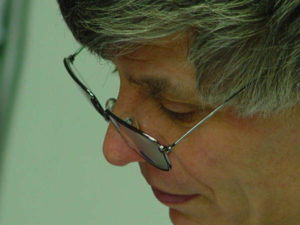When the few of us from the language centre took the GCSE Maths exam at Warminster, we took them together with the students from the main school. As people learned that was the only GCSE we needed to take, there was a uproar. “How unfair!”, they claimed. But we were just as puzzled as them. Why did they need to take 10, 12 or even 15 GCSEs? We didn’t know who would ask for these results. We seemed to be getting offers from A level schools just fine, so did some of our classmates at the language centre who took no GCSEs at all. It was unfair indeed.
But once studying A level myself, I could see the logic behind taking a lot of GCSE exams. UK’s education system was comprehensive up to the conclusion of GCSE. Everyone had to pretty much study everything: various languages subjects, science subjects and social science subjects. But after that, it became highly specialized. In A level, for example, students normally just studied three or four subjects. So before one inevitably went on to forget everything he had learned in his primary and secondary schools, it was a good idea to have some proof that at least he used to know all the stuff.
Given the nature of the curriculum at A level, the most important task during the first couple of weeks at Hurtwood was to pick the right classes for the coming two years. The decision was so important that its implications would affect a student all the way through university and beyond. If a student wanted to become an aviation engineer at Rolls Royce for example, she would need a university degree in engineering. That in turn required her to study both Maths and Physics at A level. If she didn’t pick both these two classes this week, that career would be essentially out of the window. The decision, although not life or death, was close.
Most of us had some idea of what we wanted to study. After all, we were asked the question when we applied for A levels and were tested accordingly. For example, I picked both Economics and Mathematics so that I could go on to read economics at university. Since the first day I landed at Heathrow and saw how rural the whole country was, I began to wonder how UK could be such a rich country. I saw no skyscrapers nor no factories. Why was all the money from? It was said England was a nation of shopkeepers. But I didn’t even see that many of them. The only shop that I could find within a few miles right now was the school shop that opened an hour a day during lunch time. I wished I would find UK’s secret some time down the road.

Hurtwood also gave us flexibility in switching classes during this week if we changed our mind for whatever reasons. Some of the changes were influenced by the teachers. Bob, the physics teacher, set up an exhibition of projects done by last year’s students that proved to be very popular. One piece of work performed a magic trick using a magnetic and brought some nice memories from Warminster. Other decisions were influenced by fellow students. One guy in the physics class was visibly an artist—we had no dress code, so that was very easy to tell—and had no interests in natural science. But what can you do when one of the most popular girls in the year decided to do physics?